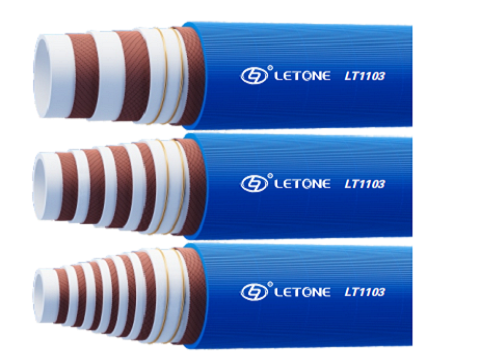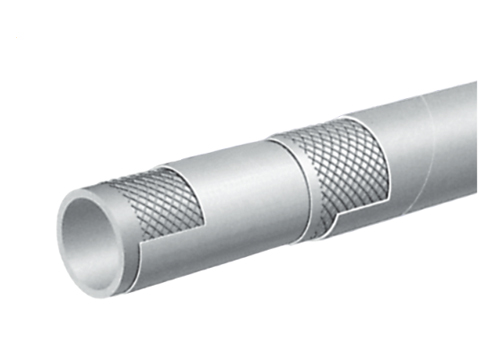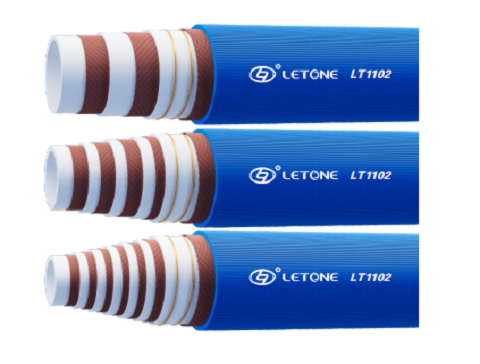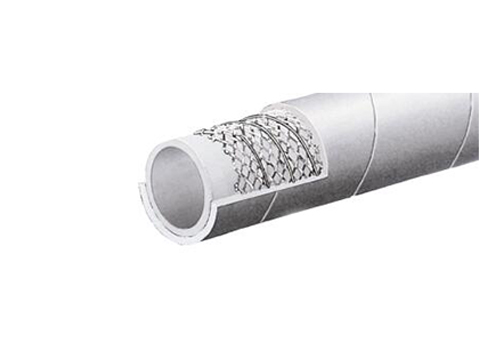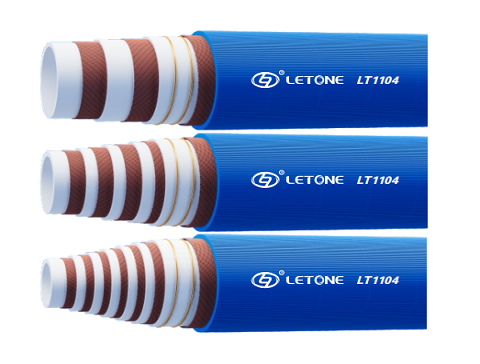Industrial hoses play an important role in most industrial settings, transferring necessary process materials. They often have special requirements, such as the ability to resist external forces that could cause them to collapse or crush.
They can also be designed to resist abrasion or carry specific chemicals, such as steam. Some hoses even feature antistatic properties that prevent the buildup of static electricity, which can be hazardous when conveying certain materials.
Flexible
Industrial hoses are flexible, often reinforced vessels used to transfer liquids or gases. They are available in a range of sizes and styles, depending on their specific uses. Some have articulating or swiveling features for precise positioning, and other varieties have special options like flame-retardance or chemical resistance for particular environments or applications.
Most hoses are made from rubber, with the inner tube and cover shaped by pressing or extruding them over an opening or molded in place. The material is then treated with sulfur at a very high temperature, which causes the rubber to become pliable and create a strong, flexible hose.
The most important specifications for a hose or hose assembly are its temperature rating and pressure rating. Temperature ratings tell how hot or cold the hose can be, while the pressure rating indicates how much internal and external pressure the hose can safely withstand. The hose must be compatible with the medium it will carry to avoid corrosion, abrasion, and contamination.
 Durable
Depending on their use, industrial hoses can be extremely durable. Water hoses transport water, fire hoses bring water to a fire, and garden hoses work as hand-watering tools or sprinklers. Hoses designed for heavy-duty use are built to withstand pressures of up to 300 pounds per square inch (psi).
A hose's durability also depends on its materials. Some hoses feature rubber material, which is resistant to abrasion and heat and can hold up well to sunlight and weathering. Other hoses may include plastic or vinyl. Metal couplings, or fittings, are available for most hoses and provide longer wear life than plastic ones.
Some hoses are designed to lay flat when empty, which makes them less prone to tangle and easier to roll up. They can also weigh less, making them easier to move and store. Some hoses are even drinking-water safe, which means they won't leach chemicals or affect the taste of the water they hold.
Corrosion Resistant
Corrosion resistant industrial hoses are designed to withstand the effects of corrosion, erosion, and other external forces that can damage regular hoses. They are available in a wide variety of sizes to meet the requirements of specific applications. Some industrial hoses are also designed to be antistatic, which can help prevent the buildup of static electricity that could cause a fire or explosion.
Some industrial hoses are manufactured using a special fabric or plastic that is more flexible than standard materials. This design allows them to resist the compression and elongation that would otherwise lead to kinking. Other hoses are manufactured with a corrugation, pleats or spiral convolutions to increase their flexibility.
Industrial hoses are also designed to handle a wide range of temperatures. This is important because temperature can affect the physical properties of the hose and the fluid or gas it transports, leading to premature failure and downtime. To prevent this, it is important to choose a hose that has been properly rated for temperature and to protect the hose assembly with insulation.
Abrasion Resistant
There’s no question that industrial hoses are designed for different applications than hydraulic hoses. These types of hoses handle chemicals, steam, cement, hot tar, epoxies, gas, oil, and many other media that isn’t compatible with hydraulic hoses.
Some hoses have design features that help them stand up to abrasion, corrosion, and other harsh conditions. For example, PTFE (more commonly known as Teflon) hoses are able to resist heat and other chemicals and gases that can erode or degrade other materials.
Likewise, there are some hoses that are designed to be crush-proof and kink resistant. This can be an important factor for abrasion resistant industrial water hoses, as it can reduce the chance of them collapsing or getting kinked under pressure.
Durable
Depending on their use, industrial hoses can be extremely durable. Water hoses transport water, fire hoses bring water to a fire, and garden hoses work as hand-watering tools or sprinklers. Hoses designed for heavy-duty use are built to withstand pressures of up to 300 pounds per square inch (psi).
A hose's durability also depends on its materials. Some hoses feature rubber material, which is resistant to abrasion and heat and can hold up well to sunlight and weathering. Other hoses may include plastic or vinyl. Metal couplings, or fittings, are available for most hoses and provide longer wear life than plastic ones.
Some hoses are designed to lay flat when empty, which makes them less prone to tangle and easier to roll up. They can also weigh less, making them easier to move and store. Some hoses are even drinking-water safe, which means they won't leach chemicals or affect the taste of the water they hold.
Corrosion Resistant
Corrosion resistant industrial hoses are designed to withstand the effects of corrosion, erosion, and other external forces that can damage regular hoses. They are available in a wide variety of sizes to meet the requirements of specific applications. Some industrial hoses are also designed to be antistatic, which can help prevent the buildup of static electricity that could cause a fire or explosion.
Some industrial hoses are manufactured using a special fabric or plastic that is more flexible than standard materials. This design allows them to resist the compression and elongation that would otherwise lead to kinking. Other hoses are manufactured with a corrugation, pleats or spiral convolutions to increase their flexibility.
Industrial hoses are also designed to handle a wide range of temperatures. This is important because temperature can affect the physical properties of the hose and the fluid or gas it transports, leading to premature failure and downtime. To prevent this, it is important to choose a hose that has been properly rated for temperature and to protect the hose assembly with insulation.
Abrasion Resistant
There’s no question that industrial hoses are designed for different applications than hydraulic hoses. These types of hoses handle chemicals, steam, cement, hot tar, epoxies, gas, oil, and many other media that isn’t compatible with hydraulic hoses.
Some hoses have design features that help them stand up to abrasion, corrosion, and other harsh conditions. For example, PTFE (more commonly known as Teflon) hoses are able to resist heat and other chemicals and gases that can erode or degrade other materials.
Likewise, there are some hoses that are designed to be crush-proof and kink resistant. This can be an important factor for abrasion resistant industrial water hoses, as it can reduce the chance of them collapsing or getting kinked under pressure.

